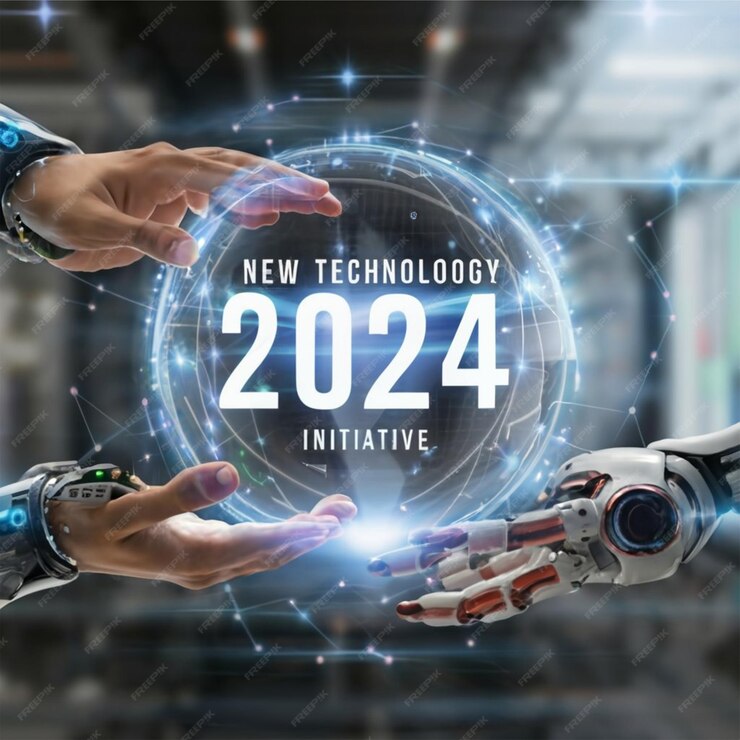In today’s digitally dominated landscape, artificial intelligence (AI) has become an integral part of our lives, influencing everything from how we interact with technoolgy to the way we conduct business and even impacting global economies. But what if we were to rewind the clock and imagine a world where AI never made its breakthrough? What would that reality look like?
In this thought experiment, we’ll explore the hypothetical scenario of a world without AI and delve into the potential consequences and shifts that would have occurred across various aspects of society.
Table of Content
- Introduction
- Technological Advancement
- Labour and Employment
- Economic Landscape
- Healthcare and Medicine
- Societal Impact
- Conclusion
1. Technological Advancement:

Without AI, technological progress would have taken a markedly different trajectory. AI has been a driving force behind innovations such as autonomous vehicles, natural language processing, and image recognition. These advancements have revolutionized industries ranging from healthcare and finance to transportation and entertainment.
In the absence of AI, traditional computing methods would likely still prevail, albeit at a slower pace. Tasks that are currently automated by AI algorithms would require manual intervention, leading to inefficiencies and slower rates of progress in areas such as data analysis, pattern recognition, and decision-making.
2. Labour and Employment:

One of the most significant impacts of AI’s absence would be felt in the labor market. AI-driven automation has already begun to reshape industries by automating repetitive tasks and augmenting human capabilities. However, without AI, the pace of automation would be considerably slower, leading to a different distribution of labor.
Jobs that have been displaced by automation in our current reality would still be performed by humans, albeit with less efficiency and productivity. This could potentially lead to a higher demand for manual labor in certain sectors, while other industries may struggle to innovate and remain competitive without the assistance of AI-driven technologies.
3.Economic Landscape:

The economic implications of a world without AI would be profound. AI has contributed to increased productivity, cost savings, and the creation of entirely new industries. Without AI-driven efficiencies, businesses would face higher operating costs and reduced profit margins.
Moreover, the absence of AI-powered technologies could stifle innovation and limit economic growth in key sectors. Countries and companies that have invested heavily in AI research and development would find themselves at a competitive disadvantage, potentially leading to shifts in global economic power dynamics.
4. Healthcare and Medicine:

In the field of healthcare, AI has shown great promise in areas such as medical imaging, drug discovery, and personalized medicine. Without AI, medical professionals would rely solely on traditional diagnostic methods and treatment approaches, which could lead to delays in diagnosis, misinterpretation of medical images, and less targeted therapies.
Furthermore, the absence of AI-driven healthcare solutions would limit access to advanced medical care in underserved regions and communities, exacerbating existing healthcare disparities.
5. Societal Impact:

Beyond the realm of technology and economics, the absence of AI would have far-reaching societal implications. AI has raised complex ethical and social questions regarding privacy, bias, and autonomy. Without AI, these issues would still exist but may manifest differently in the absence of AI-driven technologies.
Additionally, AI has the potential to exacerbate inequalities if not deployed responsibly and equitably. However, it also offers opportunities to address societal challenges such as climate change, poverty, and access to education and healthcare.
Conclusion:
In this alternate reality where AI does not exist, the world would undoubtedly be a different place. Technological progress would be slower, economic dynamics would shift, and societal challenges would manifest in different ways. While AI has the potential to transform our world for the better, it also presents significant challenges and risks that must be carefully navigated.
Ultimately, imagining a world without AI serves as a reminder of the profound impact that technology has on every aspect of our lives. It underscores the importance of responsible innovation, ethical considerations, and ensuring that technological advancements are harnessed for the benefit of humanity as a whole. As we continue to shape the future of AI, let us do so with a mindful approach that prioritizes the well-being of society and the planet.



Loving your blog and your content. Keep up the good work and please keep the content coming.